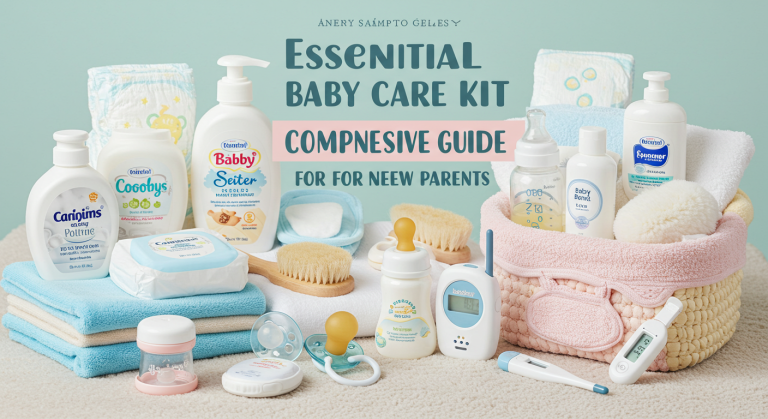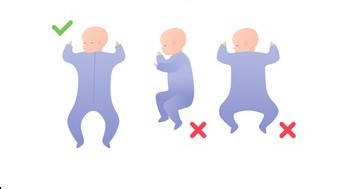Poor Feeding In Newborn can Ruin Your Parenting

Last updated on May 30th, 2023 at 12:03 am
Do you feel like you’re struggling with poor feeding in newborn? You are not alone as there are several like you. Poor feeding is a common challenge for new parents. It can cause frustration and health issues for both baby and the parents.
World Health Organization reports that poor nutrition effects are the most to infants and children are at a high risk of developmental issues from the 1000 days of early childhood.
We want to help you overcome poor feeding so that you can have a happy, healthy baby. In this blog post, you’re gonna learn about poor feeding in newborn, signs and causes of poor feeding plus tips to get rid of this issue.
Signs of poor feeding in newborn
- Lethargy
- Hypothermia
- Hypotonia
- Moaning
Lethargy and poor feeding in newborn
Lethargy and Poor feeding involve an inability to take enough calories in for proper growth and development. Inadequate intake of food can lead to severe consequences such as malnutrition and dehydration.
Which can have serious implications for both baby and parent. Poor weight gain can also result from poor feeding, increasing the risk of long-term health problems.
Stress and frustration come with fogeys attempting to identify and address the cause of poor feeding; often times it can be difficult to determine why a baby is not functioning optimally during feedings.
Therefore, understanding the underlying causes and addressing them appropriately becomes paramount in improving overall nutrition intake by the infant, who will then be able to enjoy robust growth without any additional health complications.
Signs of the lethargic newborn:
Well, the typical sign of a Lethargic baby would most likely be sleeping maximum time without feeding. though, active and healthy newborns take 2hourly feeds and wake up without stimulus. Their tiny tummies are well-tuned to sense the hunger signal therefore alarms start ringing even two hours earlier.
Lethargic newborn refuses to take feed and instead of stimulation don’t suck or latch nipple.
Weak cry or moaning.
A lethargic newborn is a genuine concern when your baby is slow, dull, and sleeping for long hours without feeding.
Effects of poor feeding
Poor feeding in newborns is a huge challenge for many new parents, as babies often refuse to drink, eat, or suckle when they are supposed to. The lack of proper nutrition due to poor feeding can create serious health risks for babies like dehydration and malnutrition.
This can lead to long-term issues like delayed cognitive development and even stunted growth.
In addition to the health risks posed, frustrated new parents must also deal with disrupted sleep schedules, performance at work potential being compromised, and more.
For many families dealing with poor feeding in their newborn infants, investing in professional guidance and support may be the best solution.
Lethargic newborns are mostly associated with poor feeding leading to hypotonia and hypothermia and hypoglycemia.
Causes of poor feeding in newborn
Causes of poor feeding amongst newborns can include reflux, physical immaturity or difficulty latching onto the mother’s breast.
- Prematurity
- Congenital illness: (jaundice, cleft palate, TEF, congenital pneumonia,)
- Acute conditions: Prom, Meconium ingestion, Honey or ghutti ingestion, Poor formula preparation technique, Poor feeding techniques.
- Poor feeding in newborns can be caused by a number of factors, including digestive issues, causes beyond their control such as physical conditions or congenital illnesses, and because they are still learning how to eat.
Babies may also become overwhelmed with milk production in the first few weeks. Fortunately, there are many ways parents can work around these obstacles and help their newborns get the nutrients they need.
To address digestive issues, try adjusting the mother’s diet to reduce heavy ingredients that may be difficult for the baby to digest.
Further, any physical or congenital illness can be managed through close monitoring and proper treatments administered by a healthcare professional.
As for developing their feeding technique, babies may need assistance from parents as they learn to latch onto the nipple correctly and position themselves comfortably when nursing or bottle-feeding.
Refrain from worrying if your baby has slowed down on their eating—it is totally normal for them to have moments of fussiness during mealtimes! All in all, with patience and logical strategies, overcome poor feeding episodes in your newborn worry-free.
Solution for poor feeding in newborn
Poor feeding in newborns can be extremely frustrating, but it is important to understand the underlying causes in order to identify an effective solution.
It is important to consult with a medical professional if you suspect any of these issues, as they could provide advice on how to cope. In some cases, adaptations may need to be made by changing position, introducing a dummy or using supplementary bottles – each will require expert guidance for optimal results.
Correct diagnosis and understanding of the cause of poor feeding is essential for creating appropriate solutions that work best for you and your baby, allowing all involved parties to return to healthy and happy breastfeeding.
Newborn baby feeding tips
Newborn babies often have difficulty with proper feeding, but there are some key tips to help new parents overcome this challenge.
First, pay close attention to ensure that the baby is latched onto the nipple correctly before you start feeding, as this will help them get the nutrition they need.
Next, be conscious of the position in which you are feeding the baby– having your baby in an upright position can help keep your little one from choking or getting too much milk at once.
Creating and following a regular feeding schedule is also important for newborns, try to establish a routine that fits with your baby’s natural rhythm. Feeding often will be more beneficial than less-frequent heavier feeds.
And if supplementing with formula is necessary, make sure to talk with your healthcare provider about what type would work best for your child.
Having a relaxed and stress-free atmosphere while feeding can help your newborn feel comfortable and secure.
Finally, it’s essential not to overfeed; allowing your newborn plenty of time to rest after each session will give them more energy when it’s time to eat again! Follow these simple guidelines and you and your little one can avoid any difficulties caused by poor newborn feeding habits.
Newborn baby feeding can be tricky, especially if there are signs of poor feeding. It’s important to address the issue sooner rather than later. Fortunately, there are a few steps new parents can take to overcome this common challenge.
By taking these steps, you can help ensure that your newborn receives the nutrition he or she needs for healthy development.

When to seek medical help for poor feeding in newborn
Many new parents are understandably concerned about poor feeding in their newborn, as it can both alarm them and impact the nutrition and growth of their baby.
If you find yourself worried and unsure of how to help your newborn feed better, seeking advice from a medical professional is one of the best steps you can take.
You should consider speaking with your doctor if there are issues such as frequent vomiting, coughing while drinking liquids, or having difficulties breathing during feedings.
Additionally, if your baby isn’t eating enough to keep up with their growth curve or is not producing enough wet diapers each day, consult a doctor as soon as possible.
Taking time to speak with a doctor regarding any problems around feeding that you may be facing will support your efforts to ensure that your baby can enjoy proper nourishment for healthy development.
Looking after a newborn can be exhausting, so it’s understandable that difficulties arose during feeding. Poor feeding in newborns is often caused by illnesses such as acid reflux, allergies, or jaw issues. As when to seek medical advice depends on the specific challenge a parent is facing.
For example, if there are delays in weight gain over two weeks and ongoing poor feeding habits, doctors should be consulted because this could indicate an underlying health issue that needs addressing; equally, if excessive vomiting occurs and your baby has difficulty breathing and swallowing in tandem, seeking medical help should be top of your list of priorities.
Unsettled babies that actively resist feedings should also have their temperatures taken to see if they have fevers or signs of infection warranting medical examination.
Generally speaking though, if you observe any stress relating to prolonged poor feeding habits or symptoms lingering past 24 hours without improvement, consulting with a doctor is wise.
Conclusion:
Poor Feeding in newborn is multifactorial If your newborn is not feeding well, there are a few signs to look out for and some potential causes. Read above! We have shared some simple solutions to feeding infants. However, with the help of your doctor or lactation consultant, poor feeding can be overcome.
Remember that every baby is different and what works for one may not work for another. If you have any concerns about your baby’s feeding, be sure to speak with your healthcare provider. Have you ever struggled with poor feeding in a newborn? What tips would you add? Let us know in the comments below.






